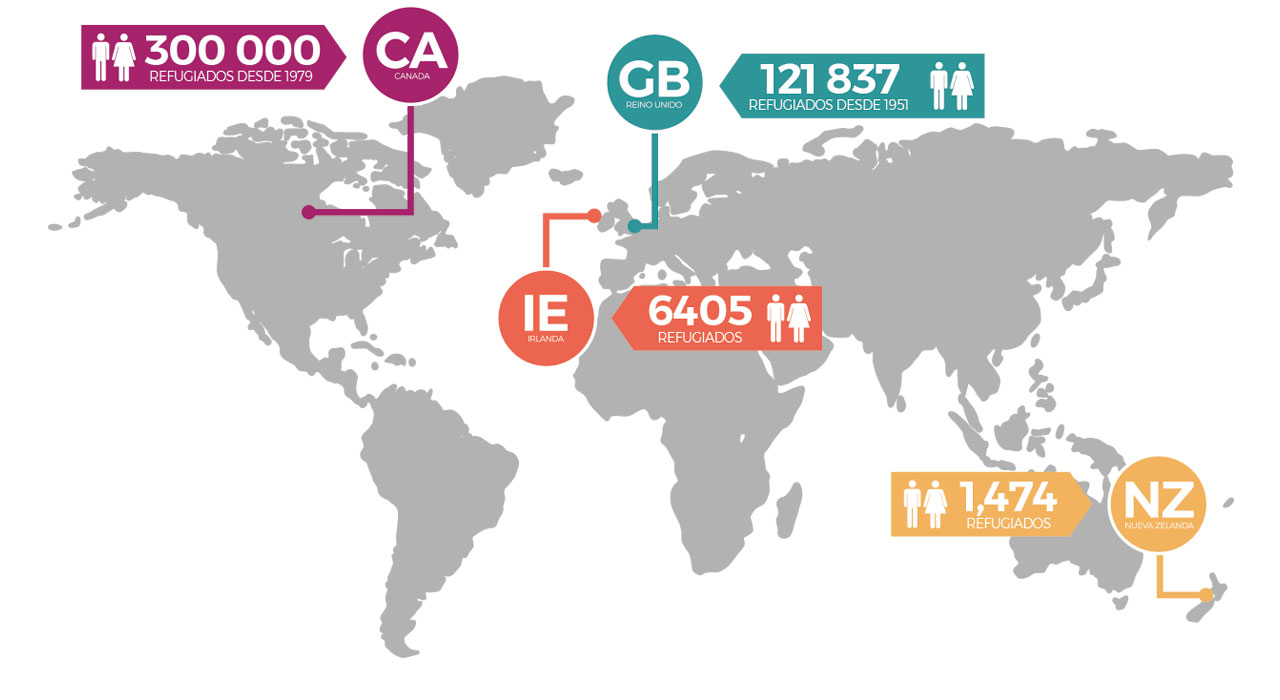At present, tens of millions of refugees all over the world are looking for a permanent solution that serves as protection, but resettlement does not occur frequently. It is estimated that less than 1 per cent of refugees all over the world will take advantage of resettlement by means of current programmes. When mobilizing and involving local communities, community sponsorship may result in increased available resettlements as a means of protection for more refugees all around the world.
There is not a single definition of ‘community sponsorship’ and the various countries implementing it have adopted diverse modalities. However, in all of them, community sponsorship allows local communities to commit themselves to offering economic, emotional and settlement support, to help refugees to adapt to and integrate into a new country.
This sponsorship commitment takes place within a framework established by the Government. Sponsors have an agreement with the Government or an intermediary organisation, which contains the agreed terms as regards economic contribution, time frame and responsibilities, among others.
By enabling citizens to participate actively in resettlement, community sponsorship makes governmental resettlement programmes grow and the country’s overall capacity increase. Community sponsorship can also improve the quality of refugees’ integration due to the personalised support and the networks offered by sponsors.

In Canada, over 300,000 refugees have been resettled since the beginning of the Canadian community sponsorship programme in 1979. The success of the private sponsorship programme in Canada shows that it can establish strong ties between sponsors and refugees, strengthen receiving communities, and promote positive attitudes towards refugees in the society. Recently, countries such as the United Kingdom, Ireland and New Zealand, have started to develop community sponsorship programmes.
With the Syria Programme, Argentina joins these innovative initiatives to offer complementary admission and reception channels for the protection of Syrian refugees and to facilitate their integration into the local society.
For further information, refer to the Explanatory Guide to Community Sponsorship on the Canadian model.
